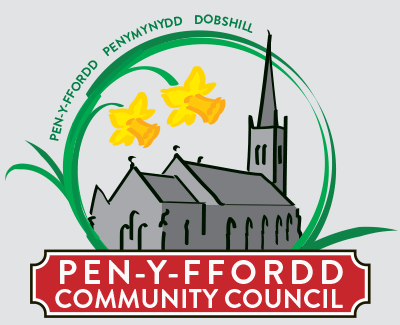Notice of Co-option for 3 Vacancies
PENYFFORDD COMMUNITY COUNCIL
Local Government (Wales) Measure 2011, Section 116
Notice of Co-Option
NOTICE IS HEREBY GIVEN that the Penyffordd Community Council intends to Co-opt three members to fill the vacancies that exist in the office of Councillor.
Expressions of interest are being sought from members of the public who meet the following qualifications and are interested in representing their community on the aforementioned Community Council. You must be a British citizen, an eligible Commonwealth citizen, a citizen of any member state of the European Union or a qualifying foreign citizen and be 18 years of age or over; and meet at least one of the following criteria:
· registered as a local government elector for the area named above; or
· during the whole of the last 12 months occupied as owner or tenant land or other premises in the community named above; or
· your principal or only place of work during the last 12 months has been in the community named above; or
· you have during the whole of the last 12 months resided in the Commuinity or with 4.8 kilometres of it.[1]
If you wish to be considered for co-option for the vacant seat or want more information regarding the role of a Community Councillor please contact the Proper Officer, Clerk to the Council on/at: clerk@penyfforddcouncil.org or 01244 537032 by (deadline) Friday 1st July 2022
Dated this 18th May 2022
[1] Certain people are disqualified from standing, and these include paid officers of the community council, anyone subject to bankruptcy restriction orders and those subject to recent sentences of imprisonment
Do you care passionately about your local community?
Is there something you want to change or improve for residents?
Are you ready to take challenging decisions?
Why not stand for what you care about and become a community councillor in your local area?
As a Councillor you will represent the views of local people and make decisions on a variety of issues concerning the community. You will also have the opportunity to contribute occupational per personal skills and expertise.
Being a councillor
Councillors are elected (or co-opted) to represent an individual geographical unit on the council, known as a ward or - mainly in smaller communities - the entire Community or town council area.
What do councillors do?
They have a duty to act properly as a councillor. In particular, they have a responsibility to:
attend community or town council meetings when summoned to do so; the notice to attend a council meeting is, in law, a summons, because you have a duty to attend;
prepare for meetings by studying the agenda and making sure you are properly informed about issues to be discussed, taking advice where appropriate;
take part in meetings and form objective judgements based on what is best for the community - and then to abide by majority decisions;
ensure, with other councillors, that the council is properly managed;
act on behalf of the whole electorate equally, and not just those who supported your election campaign; similarly take an interest in all issues equally and not just those local issues for which you campaigned; listen, and then represent the views of the community when discussing council business and working with outside bodies;
maintain proper standards of behaviour as an elected representative of the people.
Councillors have three main components to their work.
Decision making - Through meetings and attending committees with other elected members, councillors decide which activities to support, where money should be spent, what services should be delivered and what policies should be implemented. In undertaking their role, they are bound to observe the provisions of the Councillor’s Code of Conduct.
Monitoring - Councillors make sure that their decisions lead to efficient and effective services by keeping an eye on how well things are working.
Getting involved locally - As local representatives, councillors have responsibilities towards their constituents and local organisations. These responsibilities and duties often depend on what the councillor wants to achieve and how much time is available, and may include:
Going to meetings of local organisations such as tenants' associations.
Going to meetings of bodies affecting the wider community.
Taking up issues on behalf of members of the public.
Running a surgery for residents to raise issues.
Meeting with individual residents in their own homes.
Other sources of information
One Voice Wales - One Voice Wales - Become A Councillor
Welsh Local Government Association - WLGA - Be A Councillor
